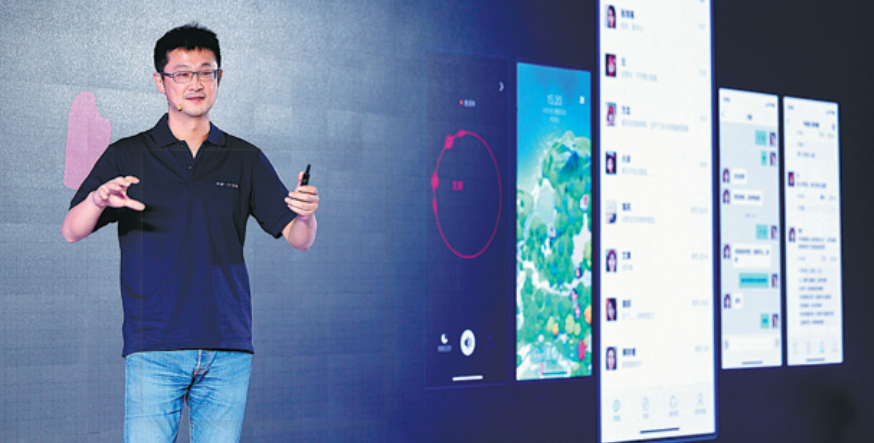Virtual friends called growing trend
By MA SI | China Daily | Updated: 2021-10-22 10:12

As social networks become more of a part of daily life, someone who feels sad may pour out their heart in a post. A friend might see the post and set up a group chat with other friends to provide comfort through texts or electronic conversation.
These days, however, such friends don't have to be human beings. They can be AI entities powered by artificial intelligence.
There is an app for that, and it's called Xiaoice Island. The AI-powered social network app was developed by Chinese artificial intelligence pioneer Xiaoice, which was spun off from United States technology giant Microsoft as a separate company based in Beijing more than a year ago.
The app allows users to create their own AI friends and interact with virtual characters in immersive experiences, said Li Di, CEO of Xiaoice. The app integrates Xiaoice's abilities to let AI systems compose and sing songs, draw paintings and edit videos.
Xiaoice's AI systems have already helped to comfort lonely hearts through more than 17 million virtual "girlfriends" and "boyfriends" in China. These 17 million electronic girlfriends and boyfriends will also move to the Xiaoice Island app, the company said.
The virtual island functions and operates to some extent like WeChat, the popular social networking app developed by Tencent Holdings in China, which lets users interact with AI through one-on-one conversation, group chat, audios and videos.
"On the island, an AI being will praise, joke and even set up a group chat with other AI beings to comfort you when you tell them that you are unhappy," Li said.
Such capabilities are based on Xiaoice's years of effort to explore how AI can better serve as a companion for people with its emotional intelligence.
The Xiaoice platform, which started as a chat robot in 2014, now provides voice-activated virtual assistants in more than 1 billion individual smart hardware devices, including smartphones and smart speakers, through its partnerships with Xiaomi Corp, Oppo, Vivo and other companies. It has also reached cooperative agreements with automaker BMW and electric car maker NIO.
Such broader interactions with humans enable Xiaoice to have a large quantity of data to constantly upgrade its abilities, according to the company.
To make AI beings on the island more like human beings, Li said the key is for AI beings to be diverse and imperfect.
When AI cannot answer a user's question, a machine could politely answer: "I'm sorry, I don't understand". But a real human's reaction might be: "Why are you asking so much? Have you finished your homework?" Li said.
Harry Shum, chairman of Xiaoice and former executive vice-president of Microsoft, said that with technological progress, almost everyone would have a personal AI assistant in the future.
The number of AI beings is likely to exceed the entire global population because people may need different AI beings to satisfy different needs. Xiaoice wants to be the platform to power them, Shum said.
Chinese consumers have become more familiar with AI beings as many virtual hosts are now active on e-commerce sites and video-streaming platforms.
Chen Rui, chairman of Bilibili, a popular Chinese short-video platform, said in June that in the past year, 32,412 virtual hosts performed on its platform, marking a year-on-year increase of 40 percent. They play games, dance, sing, paint, chat and interact with fans.
The trend has come as AI is seeing wider commercialization across various sectors in China. The nation will become a major mover in global AI development and contribute 15.6 percent of the global market by 2024, according to a report jointly released by global market research firm International Data Corp and cloud computing and big data supplier Inspur Group.
The market scale of China's AI sector is expected to maintain a compound annual growth rate of 30.4 percent to reach $17.22 billion by 2024, according to the report.
























